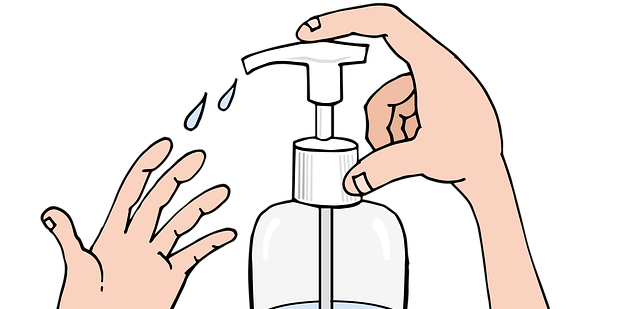One of the best ways to avoid catching COVID is to wash your hands frequently with soap and water. If that is not possible, use hand sanitiser – rubbing all areas of yours hands for at least 20 seconds or until your hands are dry.
Significantly, the World Health Organisation and the US Center for Disease Control both prescribe the use of alcohol-based hand sanitisers. The American Food and Drug Administration stating, “If soap and water are not available, CDC recommends consumers use an alcohol-based hand sanitizer that contains at least 60% alcohol.”

But now a new study from Brigham Young University in America is bringing this statement into question, believing that alcohol is not needed to make an effective hand sanitiser.
As the online journal News Medical reports, “To explore other options, they [the researchers] treated samples of the novel coronavirus with benzalkonium chloride, which is commonly used in alcohol-free hand sanitizers, and several other quaternary ammonium compounds regularly found in disinfectants. In most of the test cases, the compounds wiped out at least 99.9% of the virus within 15 seconds.”
“Our results indicate that alcohol-free hand sanitizer works just as well, so we could, maybe even should, be using it to control COVID,” said Benjamin Ogilvie, the study’s lead study author, who continued by noting the advantages of non-alcohol hand sanitisers.
“Benzalkonium chloride can be used in much lower concentrations and does not cause the familiar ‘burn’ feeling you might know from using alcohol hand sanitizer. It can make life easier for people who have to sanitize hands a lot, like healthcare workers, and maybe even increase compliance with sanitizing guidelines,” he said.

“Hand sanitizer can play an especially important role in controlling COVID,” notes BYU professor and co-author Brad Berges. “This is information that could affect millions of people. [Our findings] may actually provide a change in government directions about hand sanitizer.”
The study has now been published in the Journal of Hospital Infections.
“People were already using it [alcohol-free hand sanitisers] before 2020,” said Berges. “It just seems like during this pandemic, the non-alcohol-based hand sanitizers have been thrown by the wayside because the government was saying, ‘we don't know that these work,’ due to the novelty of the virus and the unique lab conditions required to run tests on it.”
Given that infection peaks in the pandemic have caused hand sanitiser shortages, having more options for production could be important. However, there has already been considerable research on non-alcoholic hand sanitiser, as people have long been looking for a way to kill germs and viruses on the skin without the rashes, cracking, drying, and irritation that alcohol can cause.
The problem is that to date, no one has found proof of the effectiveness of alcohol-free hand sanitiser in real world situations.
As the consumer watchdog Which?, reports, “Some common chemicals used in non-alcoholic hand sanitisers have been proven to be effective on surfaces and in suspension tests (in lab conditions), but the evidence isn’t as clear for use on hands. EN1500 is the standard [in the UK] that products must pass to demonstrate bactericidal efficacy when the product is applied to hands, but there isn’t a test standard like this for enveloped viruses on hands.”

While some alcohol-free hand sanitiser manufacturers are calling for government clarity as well as an authorised standard for their products, governments have yet to decides on what they should be, as testing in this way is not straight forward.
As a report by Sky News highlights, “Alcohol-free products are manufactured to European and British standard BS EN 14476, which certifies hand sanitiser as effective against coronavirus if it kills a certain proportion of a similar virus after being mixed with it in a test tube, but is not tested on anyone's hands.”
The lack of evidence over alcohol-free sanitiser working on people’s skin in real-life situations has some experts concerned.
“I don't see why we should be prepared to settle for something which has not been tested under use conditions,” said Professor Sally Bloomfield, Chair of the International Scientific Forum on Home Hygiene, an industry-funded NGO. “I think we should be sticking to [alcohol-based hand sanitisers] that have been tested over the years under use conditions and been shown to be effective.”

This has left many hand sanitiser users confused. Are they to trust alcohol-free hand sanitisers or not?
According to Bloomfield the answer is clear, “I think if we [should] just choose a track and stick to it,” she said, “and the alcohol has got the evidence base, that's where we should be,”
So, it seems that while the government advice is clear and most experts agree, it remains, as always, up to everyone to make their own health decisions.
If you are interested in purchasing quality hand sanitiser products and disinfecting sprays or just wish to know more about keeping you and your family virus free, then visit the AG PROTECT website.
Photo credit: cottonbro from Pexels, Edward Jenner, Michelangelo Buonarroti, P Tate from Pixabay, & Pixabay